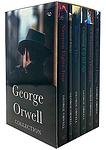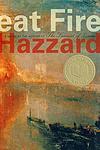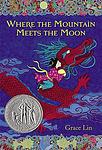The Greatest "Fiction, Asia" Books of All Time
Click to learn how this list is calculated.
This list represents a comprehensive and trusted collection of the greatest books. Developed through a specialized algorithm, it brings together 300 'best of' book lists to form a definitive guide to the world's most acclaimed books. For those interested in how these books are chosen, additional details can be found on the rankings page.
Genres
The "Asia" category for books encompasses a wide range of literature that explores the diverse cultures, histories, and societies of the continent. This category includes works of fiction, non-fiction, and poetry that delve into the complexities of Asian life, from the bustling cities of Japan and China to the remote villages of India and Nepal. Books in this category may explore themes such as religion, politics, family, and tradition, and offer readers a glimpse into the rich and varied tapestry of Asian culture.
Countries
Date Range
Reading Statistics
Click the button below to see how many of these books you've read!
Download
If you're interested in downloading this list as a CSV file for use in a spreadsheet application, you can easily do so by clicking the button below. Please note that to ensure a manageable file size and faster download, the CSV will include details for only the first 500 books.
Download-
1. The Plot Against America by Philip Roth
This novel presents an alternate history where aviator-hero and rabid isolationist Charles Lindbergh is elected President in 1940, leading the United States towards fascism and anti-Semitism. The story is narrated through the perspective of a working-class Jewish family in Newark, New Jersey, experiencing the political shift and its terrifying consequences. The narrative explores themes of prejudice, fear, patriotism, and family bonds under the shadow of a fascist regime.
-
2. Burmese Days by George Orwell
This novel is a scathing critique of British colonial rule in Burma during the 1920s. The protagonist, a disillusioned teak merchant, struggles with the bigotry and racism of his fellow Europeans, and his forbidden love for a Burmese woman. The narrative explores the effects of imperialism on both the oppressors and the oppressed, highlighting the hypocrisy, corruption, and inhumanity that result from such a system.
-
3. Against the Day by Thomas Pynchon
The novel is a sprawling epic that spans the period from the 1893 World's Fair to the years following World War I. It follows the stories of several characters including the anarchist Traverse family, a group of balloonists, a detective, and a mathematician. The book explores themes of anarchism, capitalism, and technology, and incorporates elements of science fiction, adventure, and historical fiction. It is noted for its complex structure and dense, multifaceted narrative.
-
4. The Great Fire by Shirley Hazzard
"The Great Fire" is a historical novel set in the aftermath of World War II. The story follows a British war hero, Aldred Leith, who is sent to occupied Japan to research the effects of the war on the country's culture. During his stay, he falls in love with a young girl, Helen, who is the daughter of the Australian camp commander. Despite the age difference and societal expectations, the two form a deep bond. The book explores themes of love, war, cultural change, and personal transformation.
-
5. Where the Mountain Meets the Moon by Grace Lin, Janet Song
"Where the Mountain Meets the Moon" is a children's fantasy novel about a young girl named Minli who lives in a poor village at the base of a mountain. She sets out on a journey to find the Old Man of the Moon, hoping he can answer her family's prayers for a better life. Along the way, she meets a talking goldfish, a dragon who cannot fly, and other magical creatures. Through her adventures, Minli learns valuable lessons about gratitude, kindness, and the power of storytelling.
-
6. Empire Of Cotton: A Global History by Sven Beckert
"Empire of Cotton" by Sven Beckert is a comprehensive global history of cotton, exploring its impact on the world economy, politics, and society from the 18th century to the present day. Beckert argues that cotton played a crucial role in the development of capitalism, colonialism, and imperialism, and that its production and trade were intimately linked to the exploitation of labor, the growth of slavery, and the rise of industrialization. The book offers a fascinating and thought-provoking perspective on the complex and often violent history of cotton and its enduring legacy in the modern world.
-
7. Monstress Vol. 1: Awakening by Marjorie Liu
In a war-torn world where humans and magical creatures coexist, a young girl named Maika struggles to control the monstrous power within her. Haunted by her past and driven by vengeance, she embarks on a dangerous journey to uncover the truth about her mother's death. Along the way, she allies with a talking cat and encounters a secret society of powerful witches. With stunning artwork and a gripping storyline, this dark and immersive graphic novel explores themes of identity, trauma, and the price of power.
Reading Statistics
Click the button below to see how many of these books you've read!
Download
If you're interested in downloading this list as a CSV file for use in a spreadsheet application, you can easily do so by clicking the button below. Please note that to ensure a manageable file size and faster download, the CSV will include details for only the first 500 books.
Download





